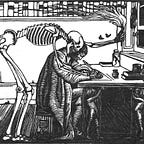Machine Learning Art: An Interview With Memo Akten
“If we do not use technology to see things differently, we are wasting it.”
- Memo Akten
I met Memo Akten before he grabbed the train to London, where he is currently developing some exciting projects and pursuing a PhD in machine learning.
R: Memo, I first contacted you for an article I was writing on artificial intelligence and the art market (you can read it here). The timing was too tight, though, so I’m glad we’re meeting today to discuss your art practice more broadly! But let’s start with AI anyway: as an artist who has long been active in this field, I am curious to have your analysis on the field as it is now. Can you briefly explain who you are and what you do?
M: Broadly speaking, I work with emerging technologies as both a medium and a subject matter, looking at its impact on us as individuals, as an extension of our mind and body, and its impact on society, culture, tradition, ritual, etc.
These days I’m mostly thinking about machines that learn, machines that think; perception, cognition, bias, prejudice, social and political polarization, etc. The current rise of big-data-driven, so-called ‘AI’ acts as a rather apt mechanism through which to reflect on all of this.
I generally try to avoid using the term ‘AI’ — unless I’m specifically referring to the academic field — as it’s very open to misinterpretation and unnecessarily egregious disagreement over terminology. Once, after a panel, I had a member of the audience approach me, and rather angrily explain to me that AlphaGo (DeepMind’s software which beat the world champion Go player) could not be considered ‘AI’ because it had no ‘sense of self,’ which is okay, I guess. But it’s also why instead I say these days I work with machine learning, a term that’s easier to define — a system which is able to improve its performance on a particular task as it gains experience. More specifically, I work with deep learning, a form of machine learning which is able to operate on vast amounts of ‘raw,’ high-dimensional data, to learn hierarchies of representations. I also think of it as the process of extracting meaningful information from big data. A more encompassing term which can refer to what we usually mean by ‘AI’ these days is ‘data-driven methods or systems,’ and specifically ‘big-data-driven methods or systems.’
R: So what you’re interested in is not the technology itself, but the effect on society? If, let’s say, pigeon catching was the latest tech revolution, would you be working on that instead?
M: If it impacted our world in such a massive way as the current big-data-driven systems do, I probably would. For example, I’m also very interested in the blockchain, but I do not feel it is as urgent a topic. Maybe it will be in a few years… (especially with the energy consumption!).
